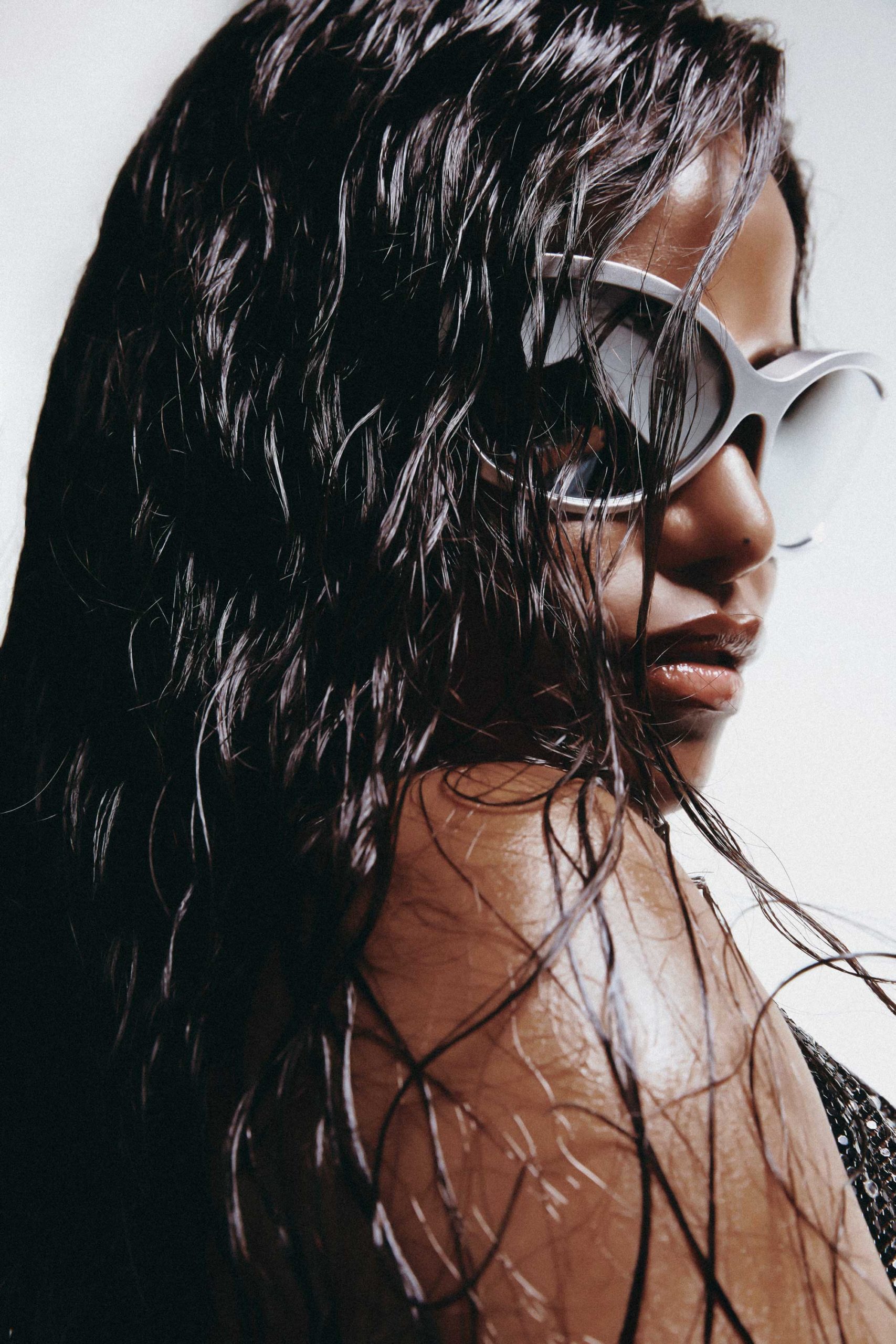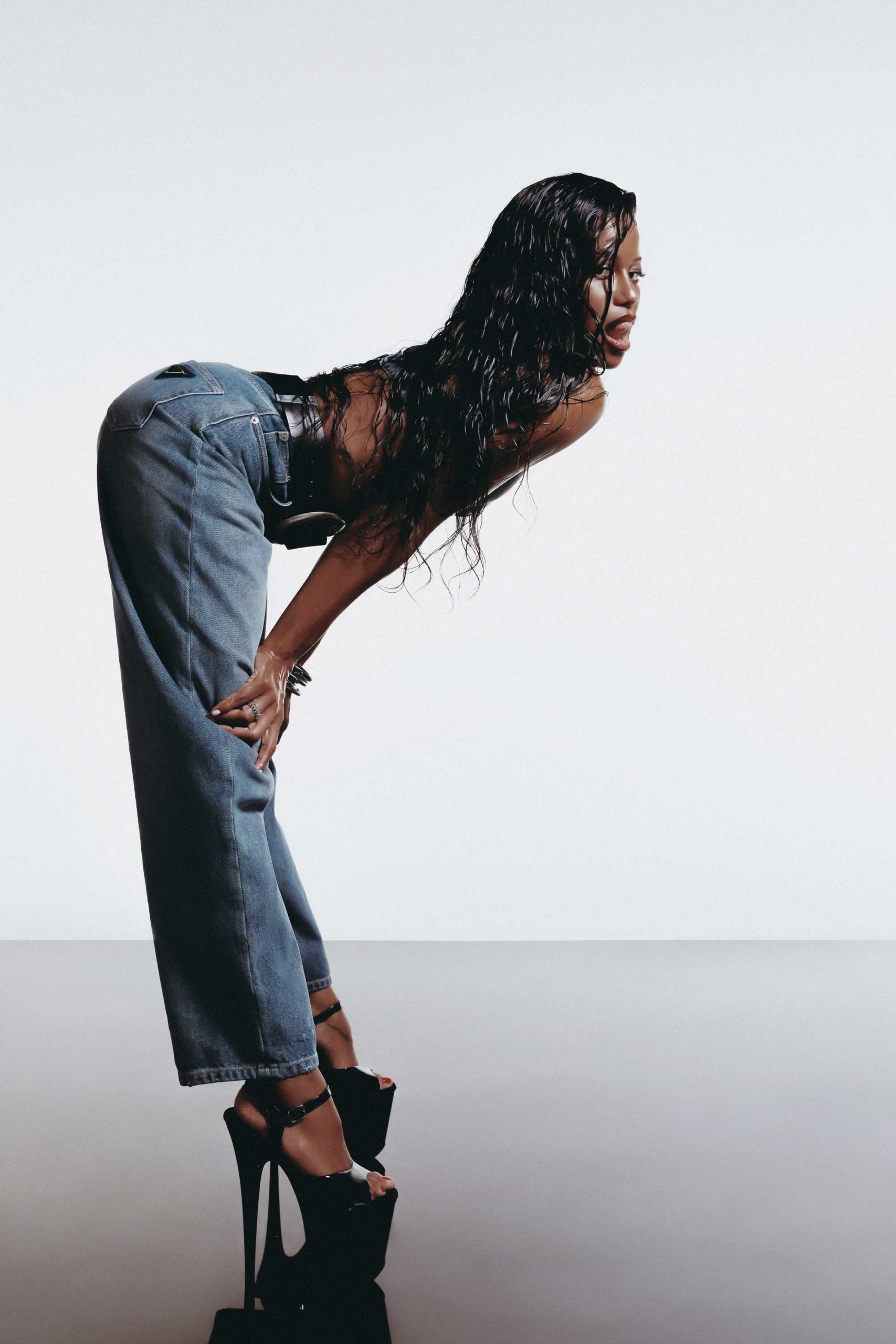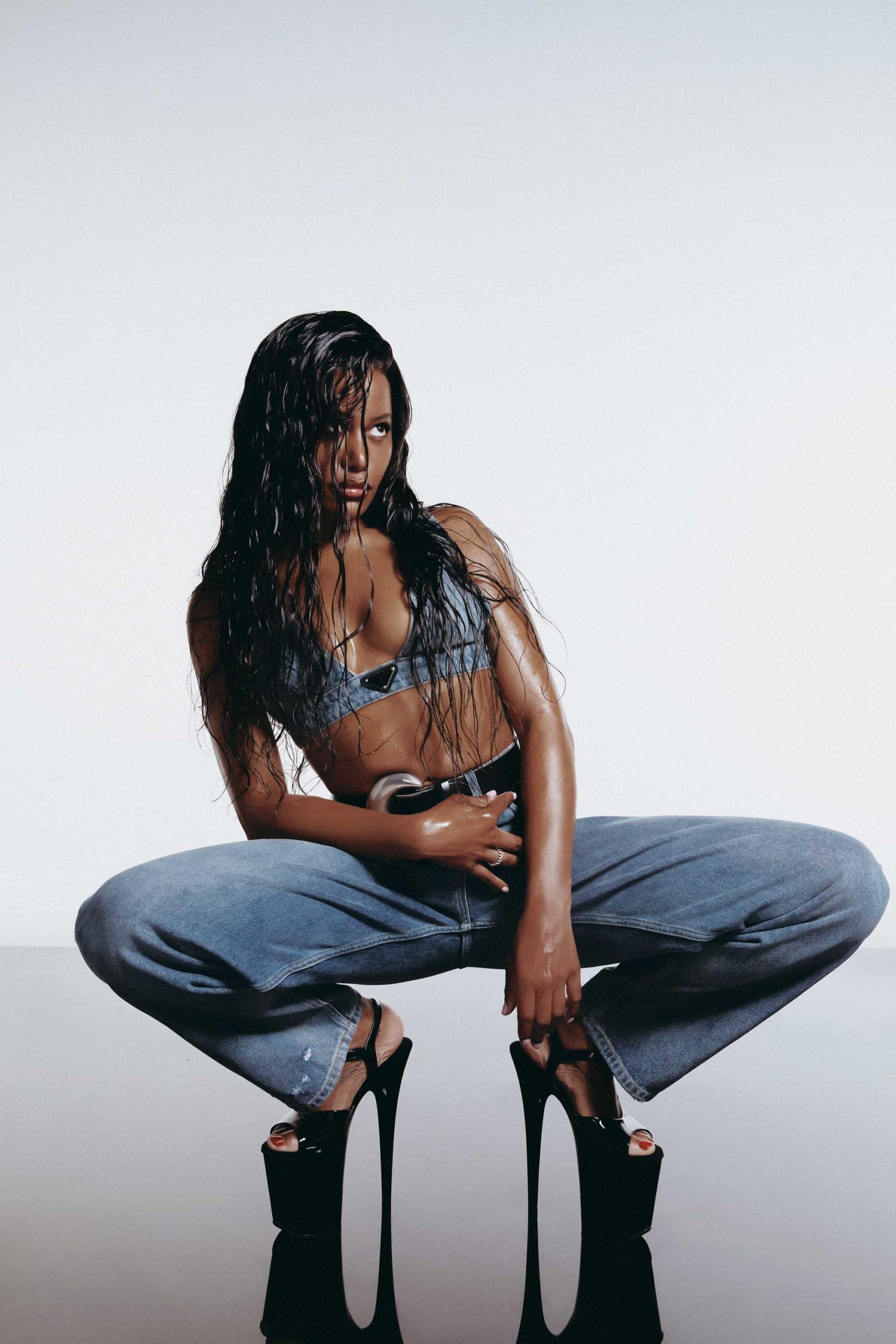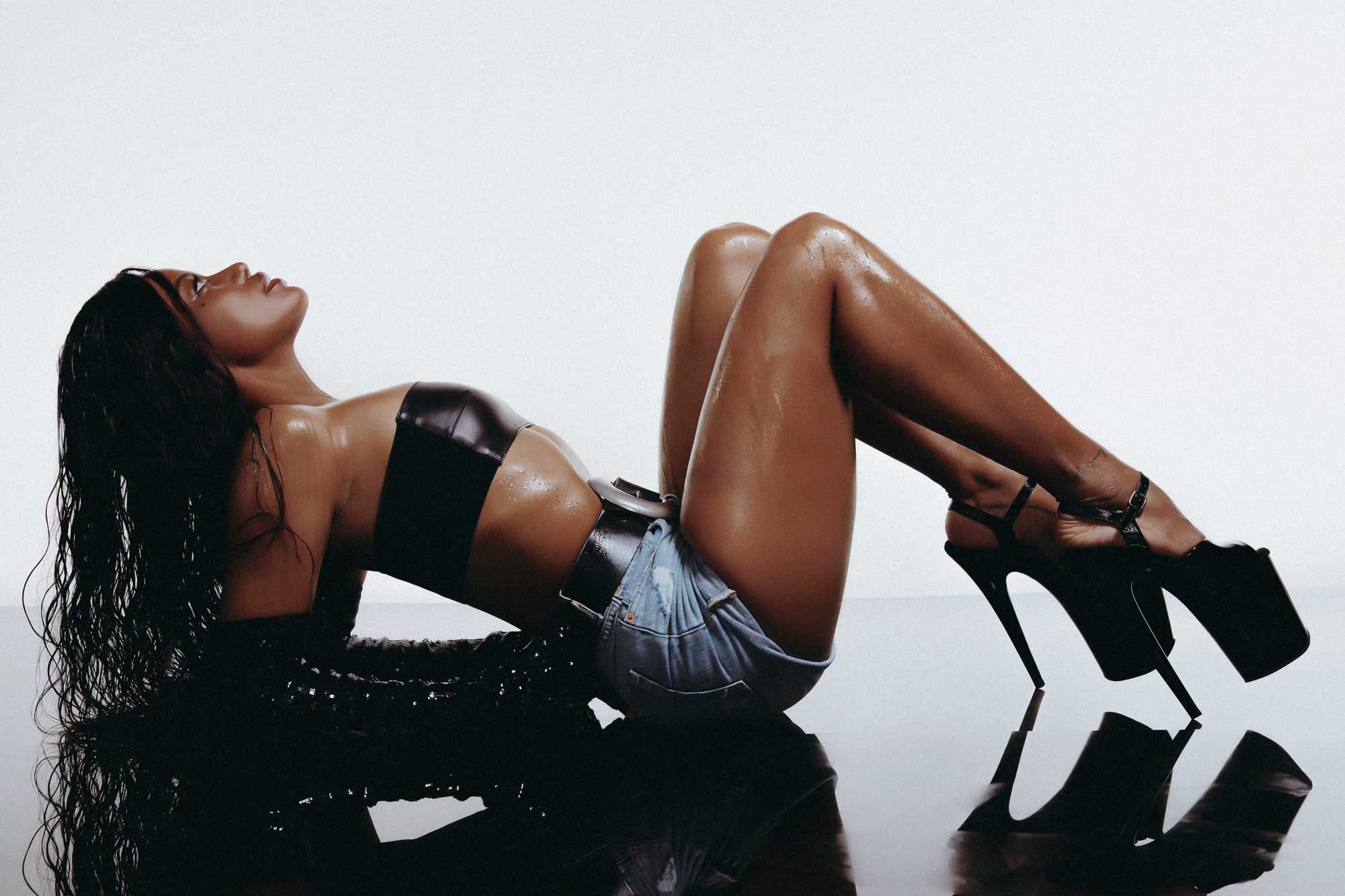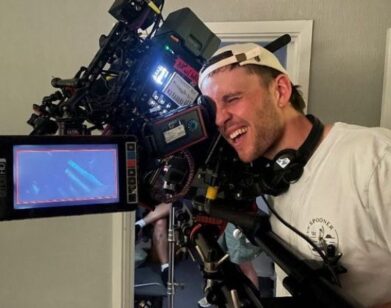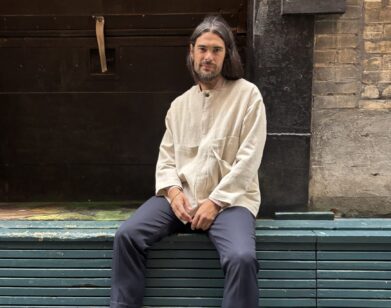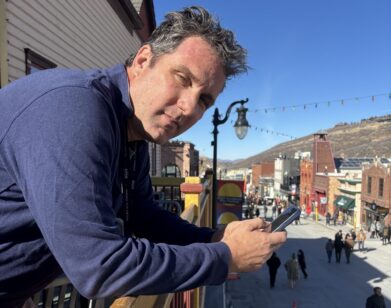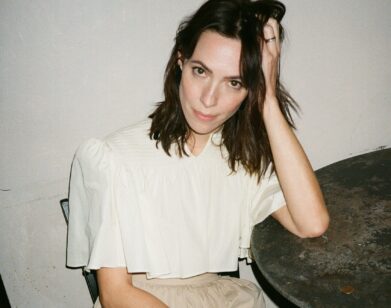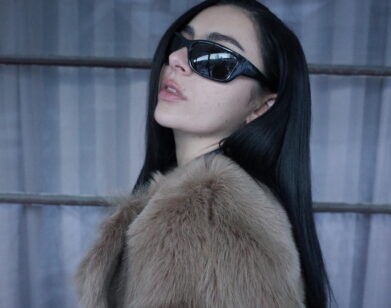arrival
Taylour Paige and Zola Were Meant for Each Other
In the new movie Zola, Taylour Paige has found a part that she was born to play. And in some ways, the part found her. In her early 20s, the Los Angeles–born actor had parlayed a background in dance into a burgeoning acting career, including a stint on the VH1 cheerleading drama Hit the Floor. But after leaving the series in 2016, Paige spent the next few years absorbing the rejections, close calls, and what-ifs that discourage—and often derail—so many Hollywood hopefuls.
Eventually, Paige auditioned for Zola, based on the internet-infamous Twitter thread (148 tweets, to be exact) courtesy of the Detroit waitress Aziah “Zola” Wells, who told the wild tale of a trip to Florida with a “white bitch,” her boyfriend, and her pimp. The goal was to earn some extra money stripping, but what ended up happening instead was enough to spark a bidding war in Hollywood. At the time, the Zola script, which featured a Black woman at its center, was written by two white men, and the project fell apart. But when it returned in 2018 with a new script by the playwright Jeremy O. Harris and the filmmaker Janizca Bravo, who was also attached to direct, Paige could no longer ignore it. She was eventually cast in the title role opposite Riley Keough and Nicholas Braun, and by the time the movie premiered at last year’s Sundance Film Festival, Paige was one of the most talked-about young actors in town. The hype was warranted; Paige delivers a performance that doesn’t just command your attention—it demands it. Since then, the 30-year-old actor has also appeared in the August Wilson adaptation Ma Rainey’s Black Bottom and in Boogie, cementing her breakout year. But, as she tells the actor Jonathan Majors, her co-star in the 2018 crime saga White Boy Rick, that’s not exactly how she sees it. —BEN BARNA
———
TAYLOUR PAIGE: Hi, Jonathan.
JONATHAN MAJORS: Hey. Off the top, I want to say congratulations, because you’ve been busy.
PAIGE: It’s been a gradual and slow, but very fruitful and intentional time. After White Boy Rick, I didn’t touch anything. Then when I did Zola, it kept getting pushed. Then I didn’t book Ma Rainey’s Black Bottom until seven months later. It’s been sporadic over the last three years, but it feels like it’s all coming out at the same time. The universe is like, “Okay, we see you.”
MAJORS: You passed on Zola initially, is that right?
PAIGE: Yeah. It was originally just two white men trying to have a black voice. The writing felt very sexist and racist. It didn’t jive with the tweets that I read. The voice didn’t match what I saw her write. I still went on tape because my agent pushed it, like, “Come on, you know you need something like this, it’ll probably go to Sundance.” And I was like, “Nah I’m good.” But it’s funny, because who was I to be saying no? I needed a job. I was working at a weed dispensary, nannying, cleaning houses. I was doing PA work on pre-production for Once Upon A Time in Hollywood.
MAJORS: What made you come back to it?
PAIGE: If it’s for you, it won’t miss you. I went on tape but I was very skeptical. Then the project went away. Then, in April of 2018, I had an audition for Hustlers—remember that movie with J.Lo? I read it and I was like, “Eh.” It was another stripper story based on a true story. So I asked my agent, “What’s happening with Zola?” And they were like, “It’s coming back, but with a new director and different writers.” And I was like, “Well that’s important information.” So I put myself on tape and the rest is history. A couple of months later I worked at Crazy Girls, the strip club on Sunset and La Brea. I stripped for three weeks.
MAJORS: And that was so you could jump into the mindset and the body of the character?
PAIGE: Well, I didn’t want to look like a dancer, I wanted to look like a stripper bitch. I was already in a low period of, “What am I going to do next?” I was in that stripper mentality. I was undercover, I didn’t tell anyone. A couple of people were like, “Aren’t you the girl from so and so? What are you doing here?”
MAJORS: Hitting the floor.
PAIGE: Same as you, girl. Trying to get this money.
MAJORS: Do you watch your own work, and if you do, did you watch Zola?
PAIGE: I watched. I’m pretty psycho. I’m like, “Why’d I hold my mouth that way?” But I recently just surrendered to it. As long as I tell the truth moment to moment, as long as I show up, we’ll see what happens.
MAJORS: That’s the way to do it.
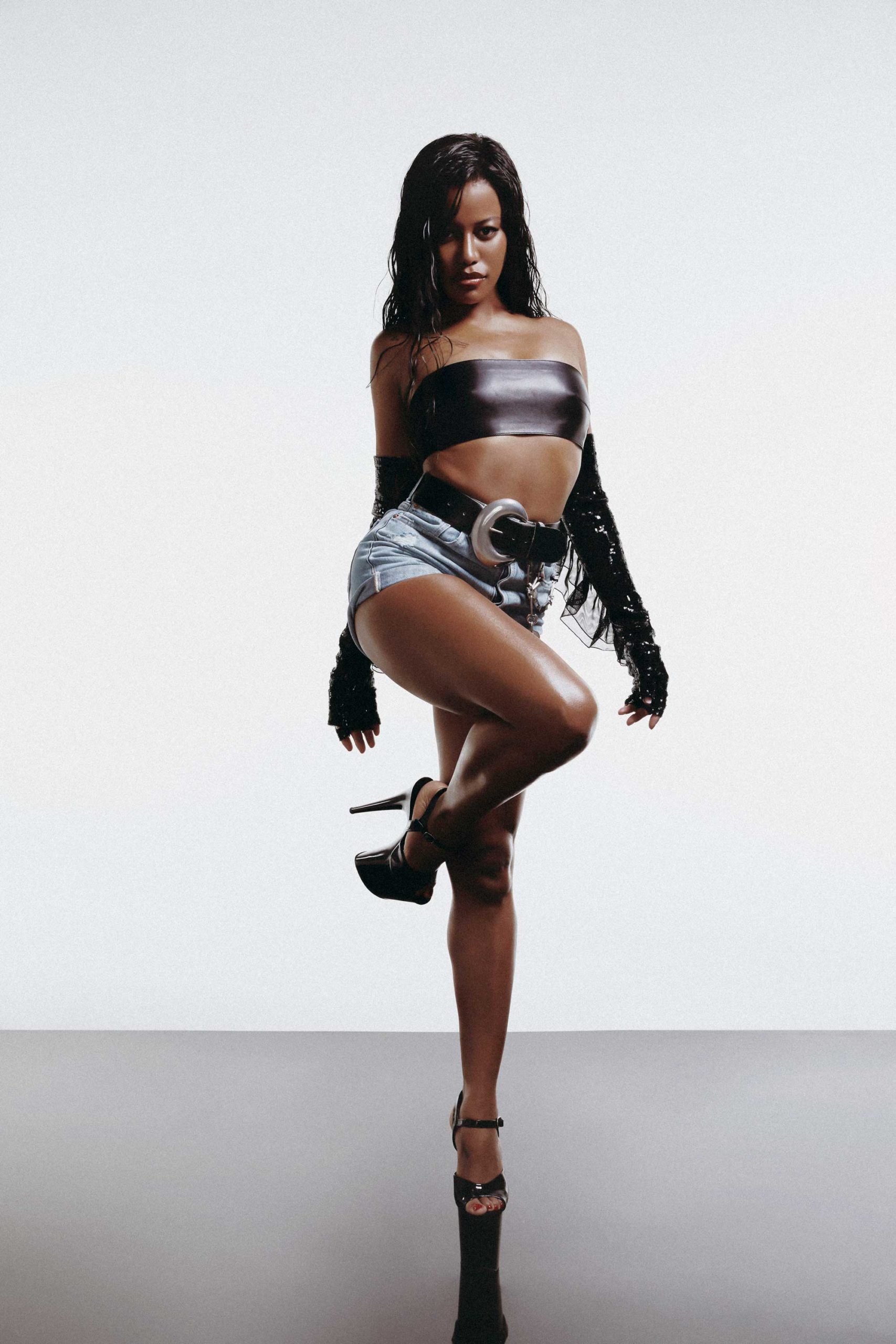
Top by Hermes. Shorts and Gloves by Gucci. Earring and Necklace(worn on shorts throughout) by Balenciaga. Belt (worn throughout) by Palace. Shoes (worn throughout) by Pleaser.
PAIGE: I feel like acting is such a spiritual vehicle, where the things that come to me, gently, lightly, are the things that I’m doing. My soul is ready for this. With Zola, I was coming into my own as a woman. I was having agency over my body, being less self-conscious, and owning my sexuality. I’m kind of shy, but you can’t be shy to play this woman. I was being asked to show up. I just knew, “I’ve got to stop apologizing.” This isn’t a woman who apologizes or asks for permission for her space. She takes up space. That’s what she did on Twitter.
MAJORS: So break it down for me. You’re on set, and you and Riley are opposite each other. Are you going word for word? Are you improvising? What’s your approach?
PAIGE: With Riley and I, it was interesting, because we went to lunch and it was just instant. We both have this thing where we feel like we haven’t quite surrendered to being in the bodies that we’re in. We feel so much bigger than our limited bodies. I’ve never really had someone articulate that before. That translated into chemistry. On weekends we would get a hotel and order a bunch of food and watch HGTV. We weren’t rehearsing, but we were just spending time together. Her grandma came and visited us once, we saw a shooting star. It was just sweet.
MAJORS: Through that process, was Taylour becoming Zola and was Zola becoming Taylour? Were you taking her home with you?
PAIGE: No, actually. I wasn’t. I was letting myself have a good time for once. I was letting myself not make too much of it. I’d done the work and Janicza [Bravo] made me feel at the beginning like, “You were always the girl,” which meant a lot when you’re so used to rejection. From the time she signed on I always felt seen and valued. I put on the clothes, we put my braid on, we put on the hoops, and I understood her. I understood how, as Black people, as Black women, we process our trauma a lot through humor. I know I do.
MAJORS: Right, right, right.
PAIGE: A lot of things that happen to us that are outrageously sad are often outrageously ridiculous.
MAJORS: That speaks to the tenor of the film, because we’re with you from the beginning. The whole thing is on your shoulders and you’re moving through it in such a way that oscillates from, “What the fuck is going on,” to, “This is crazy,” to a huge mic drop of, “My life is never going to be the same.” You just move through that with such grace and with such a dreamy quality. What were some memorable moments on set?
PAIGE: I know this sounds like I’m being super nice or sweet, but all of it. We were in Tampa, which has a conservative energy already. You use all of that. Everything, from Janicza’s specificity to the environment itself, felt like it was working out. Janicza was so specific, from our hair to our nails. She was like, “I want your nails to be a little bit more round and I want Riley’s to be sharp.”
MAJORS: Boogie just came out. Ma Rainey’s Black Bottom, too. And with this one, they gave you the ball. How are you taking in being the “breakout”?
PAIGE: Oh my gosh, I’m not a breakout. I’m weird at taking compliments. All we can do is love, however fucking cheesy or oversimplified that sounds. My legacy is just to purify my heart and lend my heart in service of the truth of storytelling. I’ve released wanting to be a really good actor and am just trying to be good moment to moment and seeing what that does. I’m reprioritizing what I’m doing this for, who I’m doing this for, how I want to feel, how I want my days to go. Something in that surrender has actually expanded what I feel like I’m available to do.
MAJORS: We all had to take a big break from filmmaking and, to a degree, storytelling. What you’re talking about feels very much a result of being in isolation and really doing that soul-searching and healing. In January, Zola hit Sundance and broke the internet. Then, we all had to go away into our caves. When you know you have something as special as Zola, and you know that you personally had a great deal to do with that, how did you metabolize the fact that it kept getting pushed?
PAIGE: I was definitely frustrated. The movie premiered, I had two days of pure bliss and joy, and then Kobe Bryant died that weekend. It was just heavy. But bigger than me, the world did need a reset. We have been needing to wake up and we have been needing to sit with ourselves. Symbolically, the pandemic has been like, “Y’all can’t outrun yourselves anymore. This is not going to work.” If anything, I feel like I had a head start on that because that’s how I’ve been trying to live. I think because of the rejection and the lulls in my career, I’ve had to do the work to become as unconditional as I can and not credit my worth with work. I’ve been preparing for this.
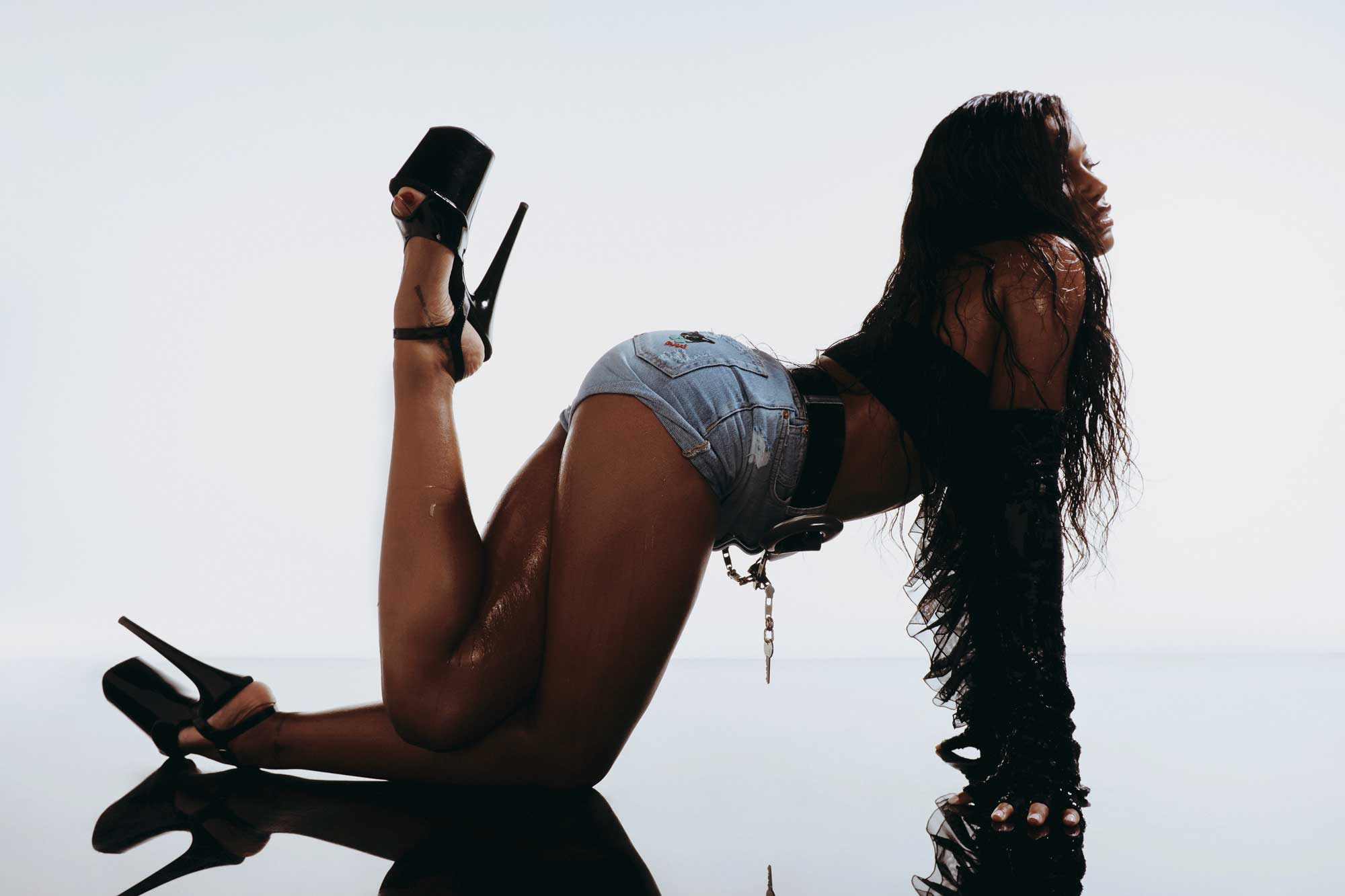
Top by Hermes. Shorts and Gloves by Gucci. Earring and Necklace (worn on shorts throughout) by Balenciaga. Belt (worn throughout) by Palace. Shoes (worn throughout) by Pleaser.
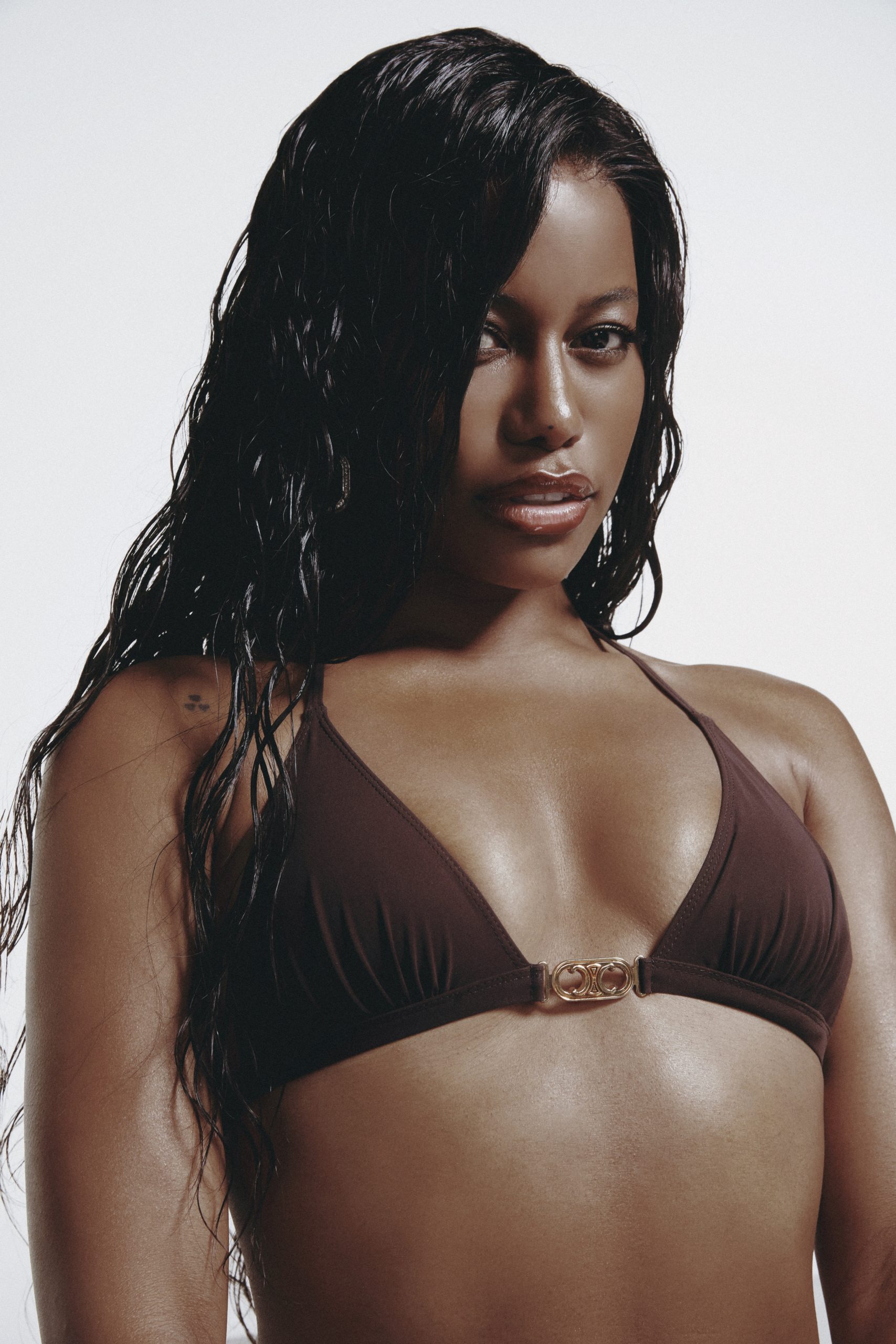
Bikini top by Celine by Hedi Slimane.
———
Hair: Alexander Armand,
Makeup: Cherish Brooke Hill
Manicure: Jenny Nyugen
Lighting Technician: Byron Nickleberry
Digital Technician: George Brooks
Production: Wildcat
Fashion Assistants: Abi Arcinas and Hayley Kuniansky
Location: Hubble Studio

